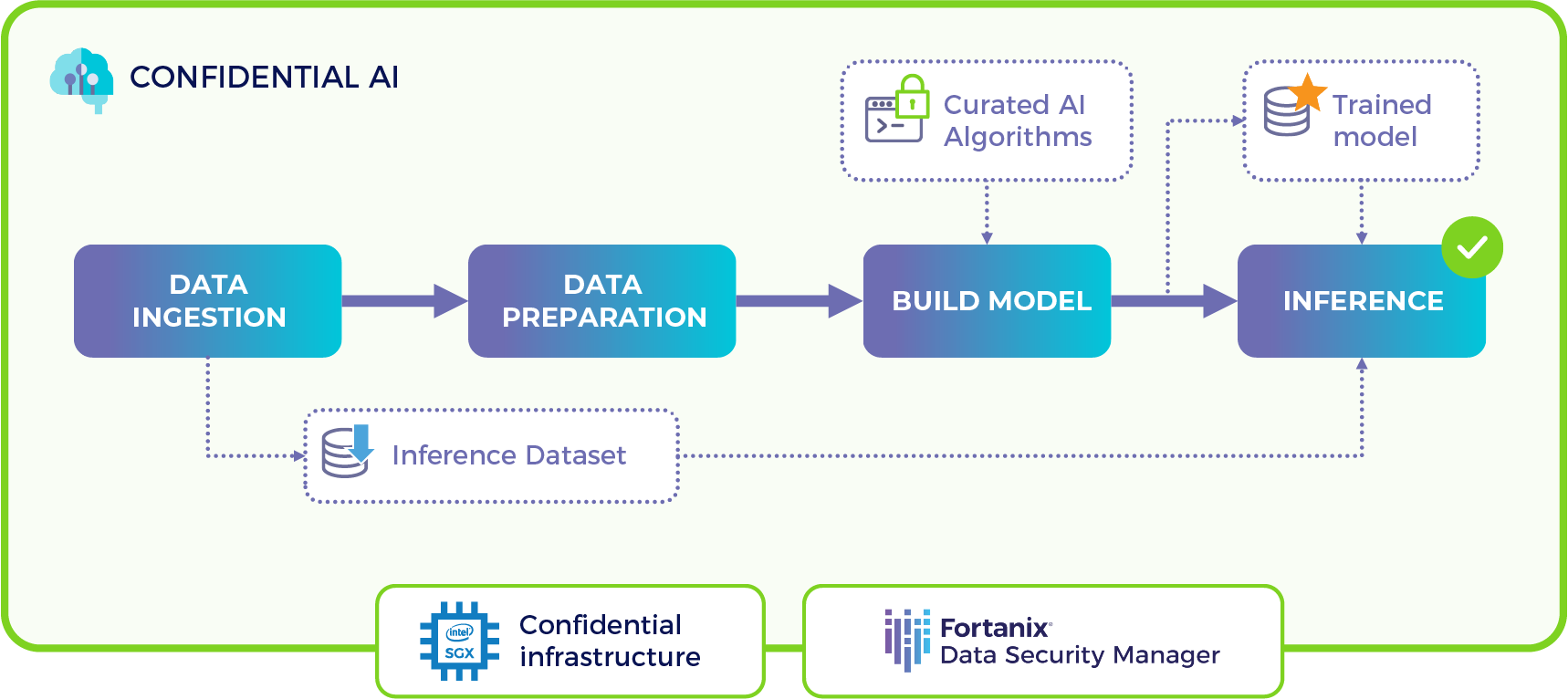What’s better than data? MORE DATA.
Let me rephrase that a bit: relevant data—quality data—varied data.
Ask any AI developer or a data analyst and they’ll tell you how much water the said statement holds with regard to the artificial intelligence landscape.
Having more data at your disposal affords simple models so much more power and can be a primary determinant of your AI model’s predictive capabilities.
When your AI model is riding on a trillion data points—outliers are much easier to classify, resulting in a much clearer distribution of the underlying data.
In contrast, picture working with 10 data points—which will require more sophisticated normalization and transformation routines before rendering the data useful.
That’s precisely why going down the path of collecting quality and relevant data from varied sources for your AI model makes so much sense.
But the pertinent question is – are you able to gather and work on data from all potential sources of your choice?
Introducing Fortanix Confidential AI
Fortanix Confidential AI (C-AI) enables data teams in regulated, privacy-sensitive industries such as healthcare and financial services to utilize private data for developing and deploying better AI models, using Confidential Computing.
It’s been specifically designed keeping in mind the unique privacy and compliance requirements of regulated industries, and the need to protect the intellectual property of the AI models.
Fortanix Confidential AI is offered as an easy-to-use and deploy software and infrastructure subscription service that powers the creation of secure enclaves that allow organizations to access and process rich, encrypted data stored across various platforms.
The privacy of this sensitive data remains paramount and is protected during the entire lifecycle via encryption.
That means personally identifiable information (PII) can now be accessed safely for use in running prediction models.
These data sets are always running in secure enclaves and provide proof of execution in a trusted execution environment for compliance purposes.

Why Should You Care?
Feeding data-hungry systems pose multiple business and ethical challenges. Let me quote the top three:
1. Error: Data Out of Bounds
A recent survey featuring the barriers to AI adoption revealed some interesting findings.
Almost two-thirds (60 percent) of the respondents cited regulatory constraints as a barrier to leveraging AI. A major conflict for developers that need to pull all the geographically distributed data to a central location for query and analysis.
You want a certain kind of healthcare data, but regulatory compliances such as HIPPA keeps it out of bounds.
The same goes for European Union’s General Data Protection Regulation (GDPR) and Schrems II that mark a certain data set as ‘unavailable’ and imposes stringent requirements on the use of individuals’ personal data.
Related Read: Let Data Make the Most of Your AI
Quick to follow were the 55 percent of respondents who felt legal security concerns had them pull back their punches.
The complications don’t stop there. There are disparate ways of processing data, leveraging information, and viewing them across different windows and applications—creating added layers of complexity and silos.
2. The Privacy Element
It’s evident that AI and ML are data hogs—often requiring more complex and richer data than other technologies. To top that are the data diversity and upscale processing requirements that make the process more complex—and often more vulnerable.
This raises an obvious question-how secure is your data coursing through an AI system?
According to Gartner ®, “Data privacy and security is viewed as the primary barrier to AI implementations. Yet, many Gartner clients are unaware of the wide range of approaches and methods they can use to get access to essential training data, while still meeting data protection privacy requirements.
Another survey by Deloitte shows similar trends, where 62% of adopters cited security risks as a significant or extreme concern, but only 39% said they are prepared to address those risks.
3. There’s More
AI systems often require contextualized data—dramatically expanding the risk factors.
Say a finserv company wants a better handle on the spending habits of its target prospects. It can buy diverse data sets on their eating, shopping, travelling, and other activities that can be correlated and processed to derive more precise outcomes.
This in-turn creates a much richer and valuable data set that’s super lucrative to potential attackers.
To harness AI to the hilt, it’s imperative to address data privacy requirements and a guaranteed protection of private information being processed and moved across.
In fact, some of the most progressive sectors at the forefront of the whole AI drive are the ones most susceptible to non-compliance.
Other sectors, such as government, life sciences, and fintech have similar prerequisites of protecting PII information shuffling between internal organizations, companies, and governments.
Meanwhile, the C-Suite is caught in the crossfire trying to maximize the value of their organizations’ data, while operating strictly within the legal boundaries to steer clear of any regulatory violations.
AI has been around for a while now, and instead of focusing on part improvements, requires a more cohesive approach—an approach that binds together your data, privacy, and computing power.
Think Fortanix Confidential AI: Think Highly Secure Trusted Execution Environments
Unlike traditional AI solutions that focus on accelerating modeling processes, Fortanix Confidential AI (C-AI) helps build smarter models and protect the IP as well. Here is a glimpse of what you can expect.
- Readily available and managed confidential computing infrastructure
- Run AI models inside Intel SGX and other enclave technologies
- Hardware-backed proof of execution and audit logging
- Support for a broad set of AI/ML frameworks
- Protect data across all stages of MLOps
- Works with Azure
- Dataset connectors support data ingestion
- Add security components like Tokenization and Encryption
The immediate benefits include, but are not limited to:
- Build smarter models with more relevant data.
- Keep private data secure and protect intellectual property of models
- Easily deploy and provision with a managed service
- Provide proof of execution to meet the most stringent privacy regulations
- Get instant project sign-off from security and compliance teams
- Trusted vendor with impeccable security heritage
and so much more…
Bottomline
I asked you a question at the beginning of the blog, let me end it with another.
How crucial an issue do you think data privacy is? If experts are to be believed, it will be the most important issue in the next decade.
The surge in the dependency on AI for critical functions will only be accompanied with a higher interest in these data sets and algorithms by cyber pirates—and more grievous consequences for companies that don’t take measures to protect themselves.
Irrespective of their scope or size, companies leveraging AI in any capacity need to consider how their users and client data are being protected while being leveraged—ensuring privacy requirements are not violated under any circumstances.
Fortanix Confidential Computing AI is where data accuracy, privacy and intellectual property protection, and control come together.
Here is a quick solution brief and datasheet to get you started.
You can also read the press release here.
Got questions? Our experts will be happy to take those here.












 3910 Freedom Circle, Suite 104,
3910 Freedom Circle, Suite 104,